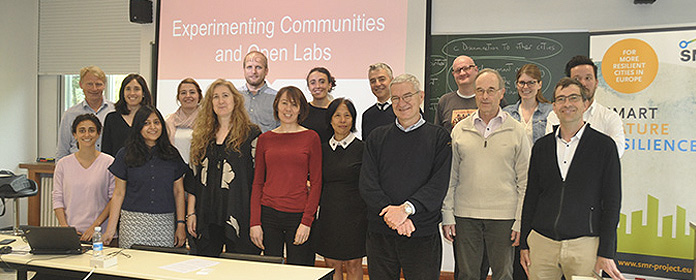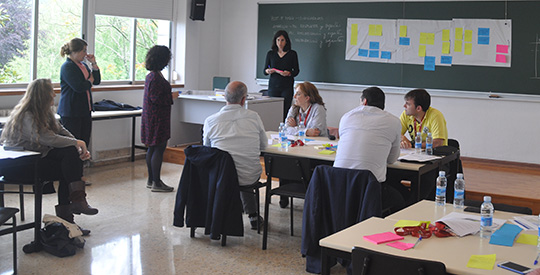News
LATEST NEWS AND EVENTS FROM THE SCHOOL OF ENGINEERING
The project Smart Mature Resilience gathers its European partners in a congress in Donostia
Resilience experts develop tools to make cities more resilient to climate change

"Donostia needs to be prepared to respond adequately to the crises arising from climate change, social issues and dependencies between critical infrastructures", says the researcher of Tecnun, José María Sarriegi. With that goal was born the project Smart Mature Resilience was born three years ago, and is now facing its final stretch.
Its purpose is to develop, validate and implement tools that increase the resilience of cities in the face of climate change, social problems and dependencies between critical infrastructures. Results that the partners of project have shared this week at the School of Engineers of the University of Navarra in San Sebastian. "We have closed the last details of project, and we have made an internal balance of it," says Sarriegi, one of the coordinators of project, along with Josune Hernantes and Leire Labaka.
The concept of resilience refers to the capacity of a system, in this case cities, to avoid suffering crises, to reduce their impact in the event of a crisis or to reduce the time and resources needed to return to normality after having suffered them.
Coordinated by the department of Industrial Organization of Tecnun, and framed within the Horizon 2020 program of the European Union, it has had the collaboration of 12 other partners, such as the Strategy Office of the City of San Sebastian, international universities and cities such as Glasgow (Scotland), Riga (Latvia), Bristol (England), Rome (Italy), Vejle (Denmark) and Kristiansand (Norway). "This is a clear commitment by the European Union to promote and develop resilience in large cities," says José María Sarriegi.
"The main element of project is a 'model of Maturity' that allows us to define various states that a city has to go through on its way to resilience," Sarriegi notes.

One of the consequences of the project SMR is the development of the guide Resilience, which aims to enable cities to withstand, absorb, respond to and recover from the effects of a crisis in a timely and efficient manner, as well as to plan how to preserve and/or restore critical infrastructure and essential functions.
Today, the importance of critical infrastructures (CIs) in ensuring the well-being of society is evident. "CIs provide citizens with water, energy, transportation, waste management, attendance sanitation, Education and other basic services. Moreover, they are fundamental for life in modern cities and when they fail, human health, welfare, and Economics are put at risk", as expressed by Cinta Lomba, researcher at Tecnun , in charge of developing this pioneering guide that will serve as reference letter to other cities and is funded by Ihobe, the Basque Government's public environmental management company.
